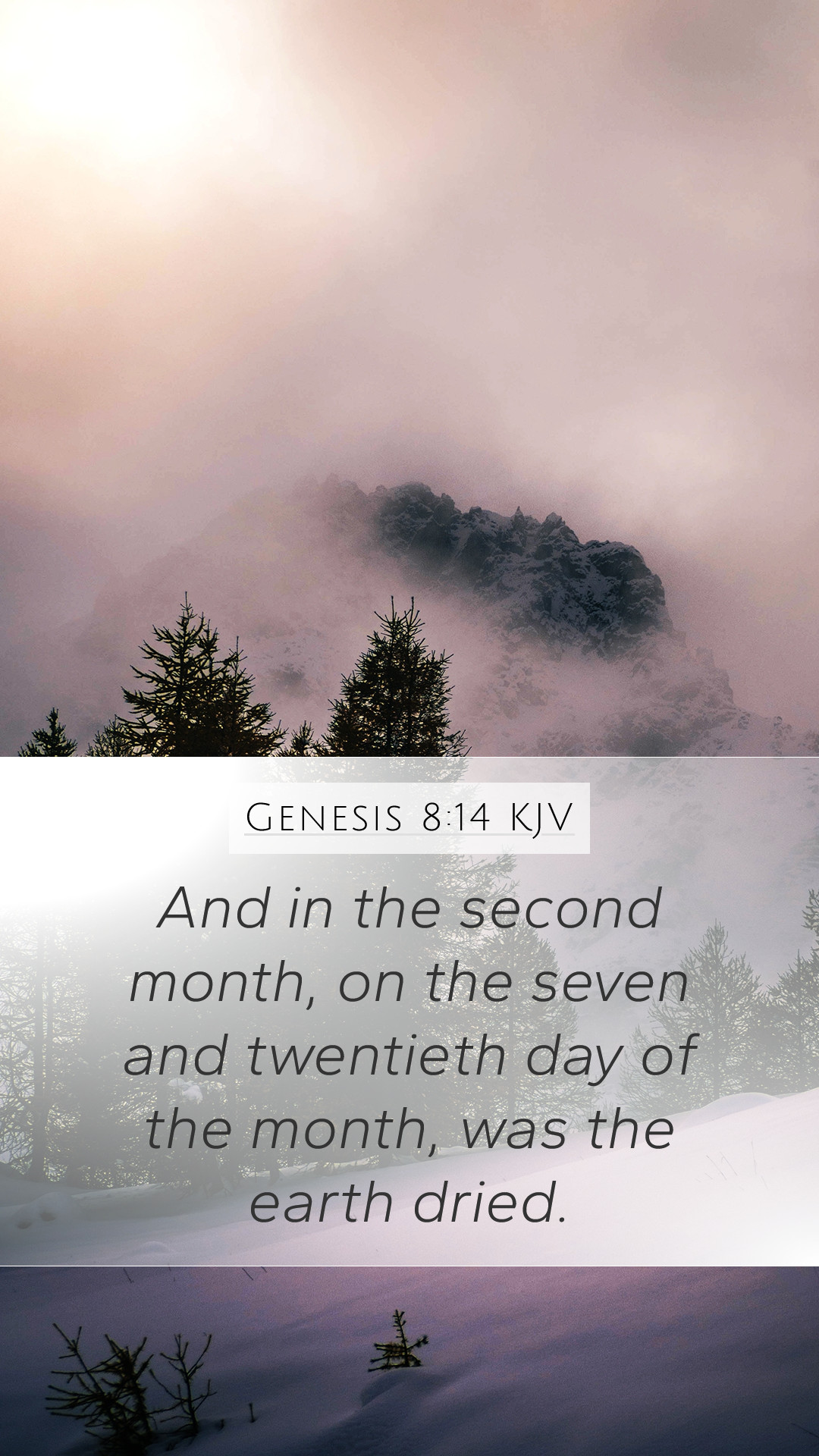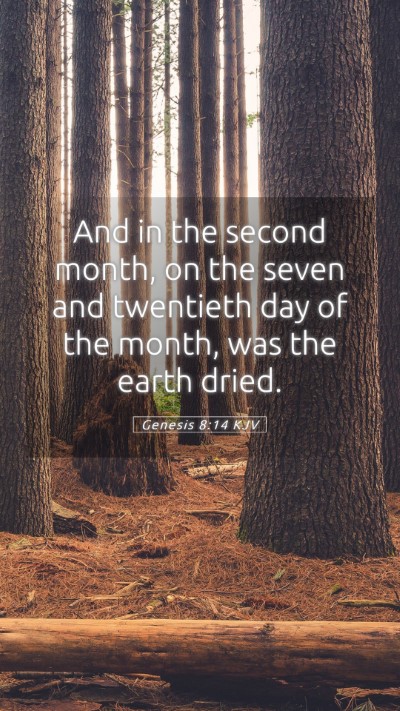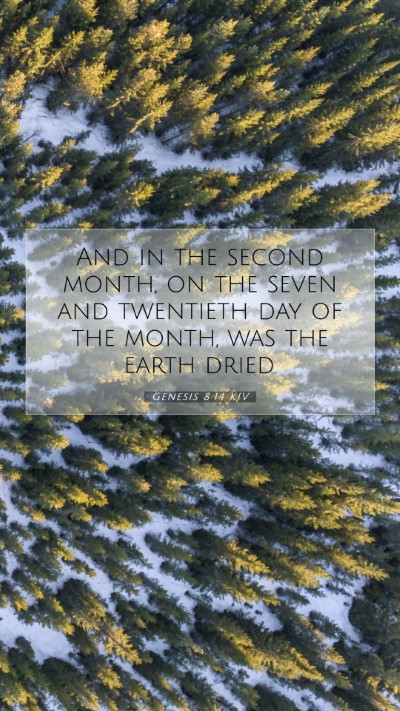Understanding Genesis 8:14
Genesis 8:14 states, "And in the second month, on the seven and twentieth day of the month, was the earth dried." This verse highlights a significant moment following the Great Flood, illustrating the restoration of the earth and symbolizing new beginnings.
Bible Verse Meanings and Interpretations
This verse indicates the conclusion of a critical transformative event in biblical history. The drying of the earth signifies God's mercy and faithfulness after judgment.
- Matthew Henry's Commentary: Henry emphasizes the axis of God's promise and His dealings with humanity. The reference to the second month aligns with the Hebrew calendar's significance of renewal.
- Albert Barnes' Notes: Barnes approaches the verse by discussing the chronological aspect of the events post-flood, reflecting on God's ability to bring order out of chaos.
- Adam Clarke's Commentary: Clarke draws attention to the duration of the flood and its aftermath, pointing out the marked transition from devastation to restoration as a demonstration of divine grace.
Bible Verse Understanding Through Context
Genesis 8:14 falls within the narrative of Noah's Ark. The drying of the earth is symbolic of God's patience and the chance for a new beginning for His creation.
- The context of the flood narrative underscores the theme of judgment versus salvation.
- There is a profound sense of hope as God resets the earth, initiating the potential for life once again.
Insights for Bible Study Groups
This verse can foster deep discussions in Bible study groups regarding the themes of restoration, hope, and God's covenant with His creation.
- Bible Study Topic: The nature of God's promises and how they manifest in our lives.
- Application: How can we relate the drying of the earth to personal experiences of renewal and hope?
In-depth Analysis and Exegesis
Examining Genesis 8:14 requires understanding its implications on theological themes such as new beginnings and divine faithfulness.
- Historical Context: This restoration follows a period of severe climatic upheaval, serving as a reminder of God's control over nature.
- Symbolism: The drying earth can symbolize the cleansing of sin, much like baptism represents a fresh start in Christian theology.
Applying the Verse to Daily Life
Genesis 8:14 offers valuable lessons on perseverance and renewal in our spiritual journeys. It encourages believers to trust in God's plans even after seasons of trial.
- Relevance Today: Just as God dried the earth, He can also bring resolution in our lives through challenging circumstances.
- Practical Application: Seeking God’s assistance in times of crisis can lead to spiritual refreshment and personal growth.
Related Bible Cross References
- Genesis 9:11: God's covenant with Noah promising never to flood the earth again.
- Isaiah 43:19: The promise of new things from God, resonating with the theme of renewal.
- Revelation 21:5: The proclamation of all things becoming new, echoing the message of hope and restoration.
Conclusion
Genesis 8:14 encapsulates the essence of God's mercy following judgment. Through a careful examination of public domain commentaries and an understanding of the scripture's context, we gain profound insights into the meanings behind this verse. Engaging with this text offers invaluable lessons on renewal, hope, and the constant presence of God's grace in our lives.


